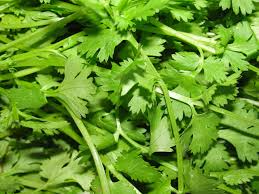
Coriander is an annual herb of the family Apiaceae. The word dhanyak literally means ‘rich’. It is a popular Indian curry ingredient and also a good herbal medicine. The antispasmodic and expectorant properties of this herb helps in treating lung diseases. It is a good herbal medicine for soothing the digestive system and cooling any burning sensations in the body.
Benefits of Dhanyak: Main herb for digestive disease and skin rash problems; colic, relieves internal heat, arthritis, indigestion, bloating, inflammation in the digestive system, neuralgia, piles, thirst, allergies, dysuria, cystitis, fever, hay fever, sore throat, intestinal disorders, urinary diseases, lung diseases.
Action: Alterative, antibilious, aphrodisiac, aromatic, carminative, diaphoretic, diuretic, stimulant, stomachic, tonic.
Scientific name: Coriandrum sativum.
Useful part: Leaves, seeds.
Dosage: 1–30g per day or 3–15ml per day.
Ayurvedic Action
Agnimandyanasaka: Alleviates sluggish appetite
Dahaghna: Alleviates burning inthe body
Dipana: Appetite stimulant
Amapacana:Toxin digester
Sulaprasamana: Alleviates intestinal spasms
Trsnaghna: Alleviates thirst
Krmighna Worm killer
Kushthaghna: Alleviates skin conditions
Energetics
Rasa (taste): Pungent, bitter, sweet
Vırya(energy): Cooling (leaves), warming (seed)
Vipaka(post-digestive effect):Sweet
Guna (quality): Light, oily
Dosa effect:: VPK−, especially pitta
Dhatu(tissue): Plasma, blood, muscle
Srotas (channel): Digestion, urinary, respiratory, nervous
Classical and common names
Ayurvedic: Dhaanyaka, Kustumburu,Dhaanyeyaka, Dhanika, Dhanikaa, Dhaanaa, Dhaanya, Dhaniyaa, Kunati, Chhatraa, Vitunnaka.
English: Coriander.
Constituents: Volatile oil -Coriandrol, anethole, camphor, limonene, geraniol, borneol, Flavonoids-Rutin, quercetin,apigenin. Coumarins-Psoralen, angelicin, umbelliferone,Phenolic acids, Phthalides.
Preparation: Juice, infusion, powder.